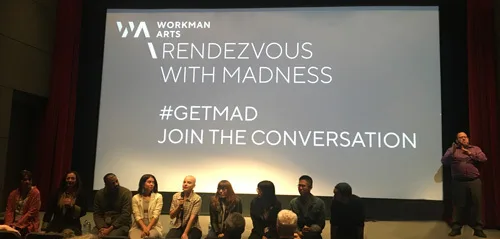Toronto – Two powerful and award-winning documentaries from the National Film Board of Canada (NFB) will be featured at the 2024 Rendezvous with Madness Film Festival in Toronto, taking place October 25 to November 3.
The festival’s opening night film, Vancouver-based filmmaker Jules Arita Koostachin’s WaaPaKe (Tomorrow) unravels the tangled threads of silence suffered by residential school Survivors through truth, freedom and power.
The festival will host the Ontario premiere of Montreal filmmakers Brian M. Cassidy and Melanie Shatzky’s immersive documentary fable A Man Imagined, a bracingly intimate and hallucinatory portrait of a man with schizophrenia surviving amidst urban detritus and decay.
More about the films
WaaPaKe (Tomorrow) by Jules Arita Koostachin (80 min)
SCREENING: Friday, October 25, 2024, 6:30 p.m. | Arrell Family Foundation Auditorium at CAMH (1025 Queen Street West, 2nd Floor)
Produced by Teri Snelgrove and executive produced by Shirley Vercruysse for the NFB
Press kit: mediaspace.nfb.ca/epk/waapake
- For generations, the suffering of residential school Survivors has radiated outward, impacting Indigenous families and communities. Dr Jules Arita Koostachin’s deeply personal documentary moves beyond intergenerational trauma, with an invitation to unravel the tangled threads of silence and unite in collective freedom and power.
- Named Best BC Film at the Vancouver International Film Festival and winner of the APTN Award at the Montreal First Peoples Film Festival.
- Dr. Jules Arita Koostachin (Attawapiskat) is an award-winning filmmaker, mother, writer, performance artist and academic. With her background in community work, social justice themes emerge in her films, alongside bravery, healing, connection and humour. Jules honours her Cree-speaking grandparents who raised her, and her mother, a residential school Survivor/warrior. Koostachin holds a Ph.D. in Indigenous documentary and protocols and processes, through the Institute of Gender, Race, Sexuality and Social Justice program at the University of British Columbia.









